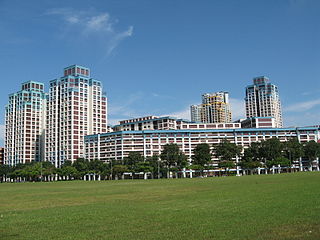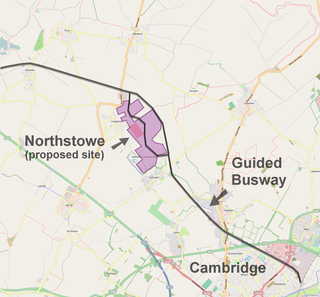Related Research Articles

The Portable Antiquities Scheme (PAS) is a voluntary programme run by the United Kingdom government to record the increasing numbers of small finds of archaeological interest found by members of the public. The scheme began in 1997 and now covers most of England and Wales.
A safety camera partnership is a local multi-agency partnership between local government, police authorities, Her Majesty's Courts Service, National Highways/Welsh Government, and the National Health Service within the United Kingdom. Their aim is to enforce speed limits and red traffic lights by the use of cameras.
Sure Start is a UK Government area-based initiative, announced in 1998 by the then Chancellor of the Exchequer, Gordon Brown, applying primarily in England with slightly different versions in Wales, Scotland and Northern Ireland. The initiative originated from HM Treasury, with the aim of "giving children the best possible start in life" through improvement of childcare, early education, health and family support, with an emphasis on outreach and community development.

Local strategic partnerships (LSPs) exist in nearly all local authority areas in England. They bring together representatives from the local statutory, voluntary, community and private sectors to address local problems, allocate funding, and discuss strategies and initiatives. They aim to encourage joint working and community involvement, and prevent 'silo working' with the general objective of ensuring resources are better allocated at a local level. In Scotland, equivalent partnerships are called Community Planning Partnerships and in Wales, Local Service Boards.
In the United Kingdom, community empowerment networks (CENs) are networks of a collection of local community, voluntary and third sector organisations and groups, set up by the central government as part of an initiative to foster community involvement in regeneration at a local level. They get together periodically to discuss issues of concern to them in relation to regeneration plans. CENs exist locally across the UK. A CEN forms an important but small part of a Local Strategic Partnership.

Building Schools for the Future (BSF) was the name given to the British government's investment programme in secondary school buildings in England in the 2000s. Around half of the work was procured under the private finance initiative. The delivery of the programme was overseen by Partnerships for Schools (PfS), a non-departmental public body formed through a joint venture between the Department for Children, Schools and Families (DCSF), Partnerships UK and private sector partners. The programme was cancelled in 2010.
Neighbourhood Renewal Fund (NRF) is a form of Local Government finance in England, launched by the Office of the Deputy Prime Minister in July 2000.
The Housing Market Renewal Initiative (HMRI) or Housing Market Renewal (HMR) Pathfinders programme was a controversial scheme of demolition, refurbishment and new-building which ran in the UK between 2002 and 2011 and aimed "to renew failing housing markets in nine designated areas of the North and Midlands of England."
Beacon Status was a progressive educational initiative that the United Kingdom implemented based on the idea that organizational learning could be advanced through a competitive process of identifying successful organizations and recruiting them to disseminate their good practices. The beacon status initiative was launched by the Department for Education and Skills (DfES) in partnership with the Learning and Skills Council (LSC) in 1998 and ran through to August 2005 for primary and secondary schools in England and Wales. Beacon Status was for providers funded by the Learning and Skills Council, which are mainly Further Education colleges. The Learning and Skills Improvement Service was still awarding Beacon Status in 2011.

Jawaharlal Nehru National Urban Renewal Mission (JNNURM) was a massive city-modernization scheme launched by the Government of India under the Ministry of Urban Development. It envisaged a total investment of over $20 billion over seven years. It is named after Pt. Jawaharlal Nehru, the first Prime Minister of India. The aim is to encourage reforms and fast track planned development of identified cities. Focus is to be on efficiency in urban infrastructure and service delivery mechanisms, community participation, and accountability of ULBs/ Parastatal agencies towards citizens.
The Neighbourhood Statistics Service (NeSS) was established in 2001 by the UK's Office for National Statistics (ONS) and the Neighbourhood Renewal Unit (NRU) - then part of the Office of the Deputy Prime Minister (ODPM), now Communities and Local Government (CLG) - to provide good quality small area data to support the Government's Neighbourhood Renewal agenda. This cross-Government initiative also involved the co-operation and partnership of data suppliers across departments, agencies and other organisations. The ONS closed the Neighbourhood Statistics website for England and Wales on the 12 May 2017. To offset this, the ONS is aiming to meet the needs of users via the ONS website, although direct postcode searches are no longer available to users.

Public housing in Singapore is subsidised, built, and managed by the Government of Singapore. Starting in the 1930s, the country's first public housing was built by the Singapore Improvement Trust (SIT) in a similar fashion to contemporaneous British public housing projects, and housing for the resettlement of squatters was built from the late 1950s. In the 1960s under the SIT's successor, the Housing and Development Board (HDB), public housing consisting of small units with basic amenities was constructed as quickly and cheaply as possible at high densities and used for resettlement schemes. From the late 1960s, housing programmes focused more on quality, public housing was built in new towns, and a scheme allowing residents to lease their flats was introduced. Throughout the 1970s and 1980s, more public housing options were provided for the middle class and efforts to increase community cohesion within housing estates were made. From the 1990s, the government began portraying public housing as an asset, introducing large-scale upgrading schemes and loosening regulations on the resale of public housing while additional housing programmes for the sandwich classes and elderly residents were introduced. Rising housing prices led to public housing being seen as an investment from the 2000s, and new technologies and eco-friendly features were incorporated into housing estates.

Northstowe is a new town that will eventually have up to 10,000 homes, with an anticipated population of 24,400 in Cambridgeshire, England, UK. On 1 April 2021 Northstowe became a civil parish, the parish was formed from Longstanton and Oakington and Westwick, with the first town council elected on 6 May of that year. Northstowe has been in development for around 15 years and through varying political administrations. Originally proposed to be "an exemplar of sustainability in the use of renewable energy resources and reducing carbon emissions", Northstowe will still have many exemplar features including a Sustainable Urban Drainage Scheme (SUDS) and bus, bicycle and pedestrian only links. The Northstowe site is five miles (8 km) northwest of the city of Cambridge, between the villages of Oakington and Longstanton. The Northstowe development is being led by Homes England, the successor body to the Homes and Communities Agency, and the developers Gallagher Estates.
New Deal for Communities was a regeneration programme led by the government of the United Kingdom for some of the England's most deprived neighbourhoods. The programme was established by Tony Blair's Labour Government and was overseen by the Neighbourhood Renewal Unit within the Department for Communities and Local Government.
LCDP is a community development organisation working across the city of Lincoln and the county of Lincolnshire.

Derker is an area of Oldham, in Greater Manchester, England. It lies in north-central Oldham, close to the boundary with Royton.
A local information system (LIS) is a form of information system built with business intelligence tools, designed primarily to support geographic reporting. They overlap with some capabilities of geographic information systems (GIS), although their primary function is the reporting of statistical data rather than the analysis of geospatial data. LIS also tend to offer some common knowledge management functionality for storage and retrieval of unstructured data such as documents. They deliver functionality to load, store, analyse and present statistical data that has a strong geographic reference. In most cases the data is structured as indicators and is linked to discrete geographic areas, for example population figures for US counties or numbers claiming unemployment benefit across wards in England. The ability to present this data using data visualization tools like charts and maps is also a core feature of these systems.
The Technical and Vocational Education Initiative (TVEI) was an initiative in education in the United Kingdom in the 1980s

Slum clearance in the United Kingdom has been used as an urban renewal strategy to transform low-income settlements with poor reputation into another type of development or housing. Early mass clearances took place in the country's northern cities. Starting from 1930, councils were expected to prepare plans to clear slum dwellings, although progress stalled upon the onset of World War II.
References
- Neighbourhood Management Pathfinder Programme: Guidance on Building Partnerships, Developing a Strategy and Producing a Delivery Plan 2001, Neighbourhood Renewal Unit.
- Research Report 31 - Joining up for Safer Neighbourhoods: A Theme Report from the Neighbourhood Management Pathfinder Programme National Evaluation, August 2006, Department for Communities and Local Government.
- Neighbourhood Management Pathfinders: Final Evaluation Report, October 2008, Department for Communities and Local Government.